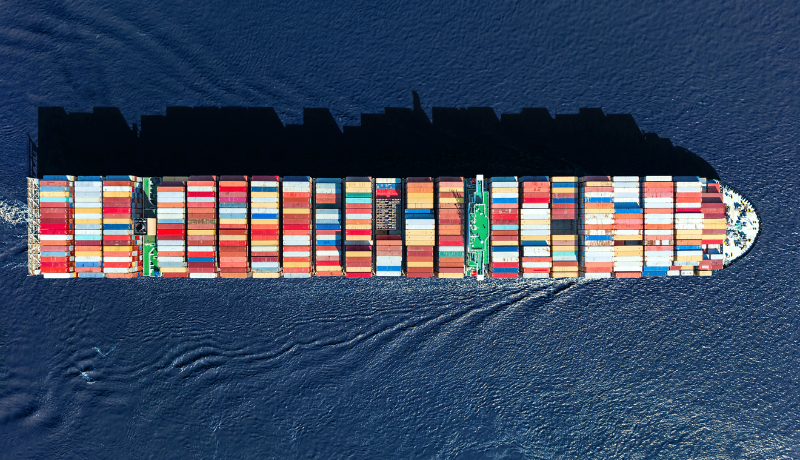A major international initiative to impose the world's first carbon pricing system for shipping was blocked after the International Maritime Organization (IMO) voted to delay its adoption for a year, marking a decisive victory for the United States, Saudi Arabia, and oil-producing allies who oppose the plan. The decision, taken on Friday, October 17, 2025, after four days of tense negotiations in London, demonstrates the deep global divisions over climate policy and the economic cost of decarbonizing the maritime sector, which is responsible for nearly 3% of global greenhouse gas emissions.
The IMO, the United Nations body that regulates global shipping, was expected to formally approve the Net Zero Framework (NZF), a legally binding system designed to reduce emissions across the industry. However, a last-minute resolution brought by Saudi Arabia and backed by the United States succeeded in postponing the vote until 2026. The resolution passed by a narrow margin of 57 votes in favor and 49 against, leaving the global plan for decarbonizing shipping in limbo.
Net Zero Framework
The NZF was considered the IMO's most ambitious climate measure to date. It would have required ships over 5,000 gross tons to progressively reduce their carbon emissions starting in 2028, or face significant financial penalties alternatively. The plan envisioned a global fuel standard and a carbon pricing system that would tax ships for emissions above a set limit.
The funds raised through this system would have been used to support low-emission ships and finance climate adaptation projects in vulnerable countries (particularly small island states threatened by rising sea levels). According to Ocean Conservancy, this framework could have reduced up to 1 billion metric tons of carbon per year by 2050, making the shipping industry the first in the world to operate under a global, legally binding carbon tax.
However, opposition led by the United States, Saudi Arabia, Russia, and the United Arab Emirates prevented the plan from moving forward this year. These countries argued that the measure would harm global trade, increase costs for consumers, and threaten economic and food security, especially in developing countries that depend on maritime imports.
April: Turning Point
In April 2025, 63 member states, including the EU, China, Brazil, Japan, and South Korea, agreed in principle to move forward with the NZF. The recent vote marks a radical shift from such decision. At that time, the plan was seen as a major breakthrough for international maritime regulation. However, the political situation quickly changed as US President Donald Trump withdrew Washington from the IMO negotiations after returning to power in January. He warned that the US “would not adhere to it in any way, shape or form” and threatened sanctions on countries that supported the measure.
The posture set off a wave of withdrawals and abstentions. For example, Argentina, which had abstained in April, moved to actively oppose the measure. China, which had previously shown support, voted to delay the decision, while countries such as Greece, Cyprus, Japan, and South Korea chose to abstain. Meanwhile, oil-rich allies such as Saudi Arabia stepped up their efforts to slow down the process.
This resulted in a week of negotiations, culminating in debates described as chaotic. IMO Secretary-General Arsenio Dominguez warned members that the week's disorder undermined the organization's credibility and urged delegates to avoid a repeat when talks resumed.
International reactions and delay implications
The postponement has drawn criticism from environmental organizations, international agencies, and some sectors of the shipping industry itself. UN Secretary-General Antonio Guterres called the delay “a missed opportunity for member states to place the shipping sector on a clear, credible path towards net zero emissions”. Both the European Union and industry leaders echoed their concerns.
Environmental groups were more direct. Seas at Risk condemned what it described as “delaying tactics” orchestrated by the United States and oil-producing countries, while Delaine McCullough of Ocean Conservancy warned that “a world without this agreement is dirtier and more dangerous for people, wildlife and the ocean”. Analysts also warned that each year of inaction risks locking in decades of emissions, as commercial ships typically remain in service for more than 25 years.
The International Council on Clean Transportation predicts that in the absence of immediate policy intervention, shipping could account for up to 17% of global GHG emissions by 2050. Critics say the delay undermines the IMO's own climate targets for 2030 and 2050 and calls into question its ability to enforce future environmental commitments.
Nonetheless, some analysts remain hopeful as the IMO plans to continue revising its Carbon Intensity Indicator (CII, a measure of ships' operational efficiency), with the aim of making it more rigorous in line with its 30% emissions reduction target for 2030.
Near future
The decision delays any possible adoption of the NZF until March 2028 at the earliest, putting the decarbonization goals of the shipping sector at risk and highlights the fragile balance between economic nationalism and climate multilateralism. For the United States and Saudi Arabia, the postponement was a political victory, while environmentalists and climate-vulnerable nations see it as a new setback in the global race for decarbonization.
As the IMO prepares to reassemble in 2026, the global shipping industry finds itself at a crossroads: caught between growing political resistance and the urgent scientific need for action. The outcome of the next round of negotiations will not only determine the future of maritime trade, but also the trajectory of the planet's climate.
